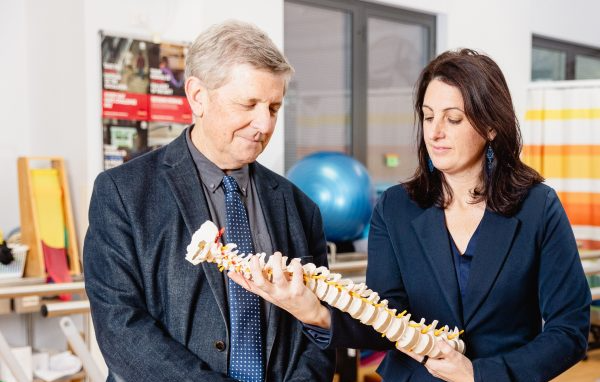Researchers at the Faculty of Medicine and Health and the Kolling Institute at Sydney’s Royal North Shore Hospital have launched the first study of its kind to support people with a spinal cord injury (SCI), investigating the benefits of combining breathing techniques with heart rate variability feedback. And researchers are looking for participants to take part in a clinical trial.
Study lead Professor Ashley Craig said many people don’t realise the wide-ranging impact of spinal cord injuries from unstable blood pressure, chronic pain and fatigue through to poor sleep, brain fog, confusion and low mood. Conditions, he said, that can significantly compromise quality of life.
The trial not only helps stabilise blood pressure but could also benefit cognition. A lot of the symptoms people have after SCI include pain and up to 30 per cent will have cognitive impairment. “We are not talking aged people here, but people in their 20s to 40s,” Craig told F2L.
A key segment of this lifestyle self-managed treatment strategy is homework, that trial participants will be trained to do, that also included wearing smart watches for monitoring their heart rate, he said.
One of the first people to join the clinical trial was Dawn Miller-Argue, who suffered a spinal cord injury in 2019, and said the strategies have helped manage her pain and given her more control over her body.
“My stress levels and fatigue have decreased, my sleeping is better and I’m more grounded and in control,” she said. “The technique has allowed me to be more productive during the day and more active and independent. Knowing how quickly I can affect change through something as automatic as breathing, and being more conscious of it, has been extraordinary,” she said.
To be eligible for the 10-week course, recruits must be 18-80 years old, with a SCI for at least 12 months, with traumatic/non-traumatic aetiology with complete/incomplete lesions, and live in the Sydney broader region up to Newcastle. It includes one day a week for six weeks at Royal North Shore Hospital, then four weeks at home, followed up at three and 12 months.
“The value of the trained therapy to participants is estimated to be worth between $6000-$7000,” Craig said.
For more information email: smart.trial@sydney.edu.au or call: 0420 378 157
Photo: Professor Ashley Craig and senior research fellow Dr llaria Pozzato

